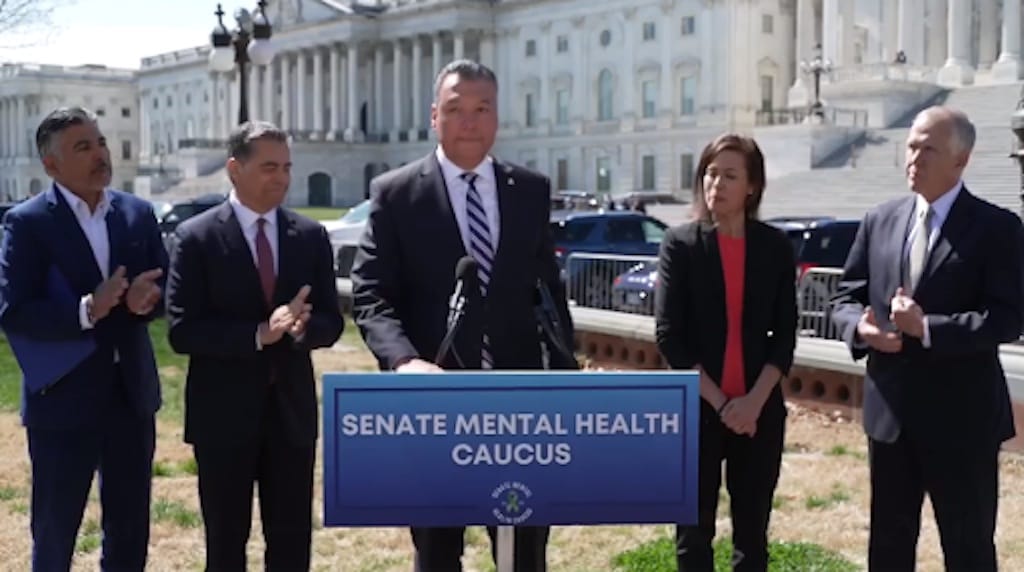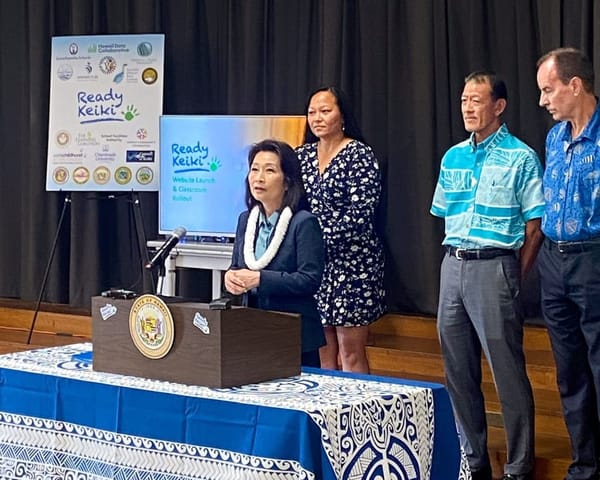Amid Calls for Accountability, FCC Proposes Georouting Initiative for 988 Lifeline
Days before the FCC proposed location-based routing for 988 calls, the program's unused funds were flagged for audit.
Jericho Casper

WASHINGTON, March 21, 2024 – The Federal Communications Commission initiated the first step Thursday to require location-based routing for calls to the 988 Suicide and Crisis Lifeline to ensure that callers are connected with local responders based on their current physical location, while safeguarding their privacy.
This proposal reflects efforts by the FCC, working in coordination with the U.S. Department of Health and Human Services’ Substance Abuse and Mental Health Services Administration (SAMHSA) to make it easier for those in crisis to get help with a phone call or text message to the 988 Lifeline.

However, amidst this forward momentum, Chairs of the House Energy and Commerce Committees penned a letter to the Government Accountability Office, urging the GAO to conduct an audit into the administration of approximately $8 billion in COVID-19 supplemental funding by SAMHSA, as well as nearly $1 billion designated for the launch of the 988 Lifeline.
Following previous inquiries by the Committee, SAMHSA released data that shows states and grantees have failed to use even half of all these funds.
Specifically, SAMHSA grantees have expended approximately $4 billion out of nearly $8 billion in COVID-19 supplemental funding, and approximately $350 million out of the $850 million for the 988 Lifeline, leaving a significant portion unused.
In light of these findings, the chairs have called upon the GAO to conduct a thorough examination to ensure that funds allocated for mental health initiatives are effectively utilized to address the pressing needs of communities across the nation.
The House Committee Chairs have requested the GAO to address the extent of states' and other grantees' utilization of SAMHSA’s COVID-19 supplemental funding allocated to grants, as well as funding for the 988 Lifeline, in an upcoming report.
FCC proposes georouting for 988 calls
Amidst the revelation of the substantial underutilization of funds allocated for mental health initiatives, the FCC unveiled a proposal Thursday to address gaps in crisis response.
Calls to the 988 Lifeline are currently routed based on the caller’s area code and exchange, which presents some obstacles to callers whose area code does not correspond to the caller’s location when in crisis.

Under the FCC's proposed plan, which introduces a georouting solution, callers to the 988 Lifeline would be connected with resources and support services nearest to their current location, potentially expediting life-saving interventions.
"With 80 percent of 988 Lifeline calls originating from mobile phones, it's crucial to adapt our routing methods to ensure timely and local assistance for those in need," FCC Chairwoman Jessica Rosenworcel said, speaking during a press event announcing the FCC proposed rulemaking. "By implementing georouting, we can significantly improve access to mental health resources and potentially save more lives."
The FCC initiative builds off legislation introduced last year by Senators Thom Tillis, R-North Carolina, and Alex Padilla, D-California, for improved routing methods for the 988 Lifeline, the Local 9-8-8 Response Act of 2023. The legislation was the first bill introduced by the Bipartisan Senate Mental Health Caucus upon its inception.
“Today's announcement that the FCC is not waiting for the bill to pass, but is initiating the first step in the rulemaking process is exciting. It is an important step. And we're going to continue to urge the FCC to move as quickly as possible throughout the process,” said Padilla. "A few seconds can make a lifesaving difference during a crisis.”
The FCC established the 988 Lifeline in 2022, and over 8.5 million Americans have sought assistance through the Lifeline in the 18 months following its launch, reported Senator Tillis.
Representative Tony Cárdenas, D-California, alongside HHS Secretary Xavier Becerra, and Senators Padilla and Tillis committed to continue championing bipartisan legislation in the federal government to make location-based routing an official legal requirement.
Rosenworcel emphasized the FCC is acting with urgency, stating, “I am sharing with my colleagues this proposal today and we're going to do everything possible to impress upon them the need to vote on this fast. This is an issue that has bipartisan support with good reason. My hope is that we will have this rulemaking available and out the door to the agency in the next several weeks.”








